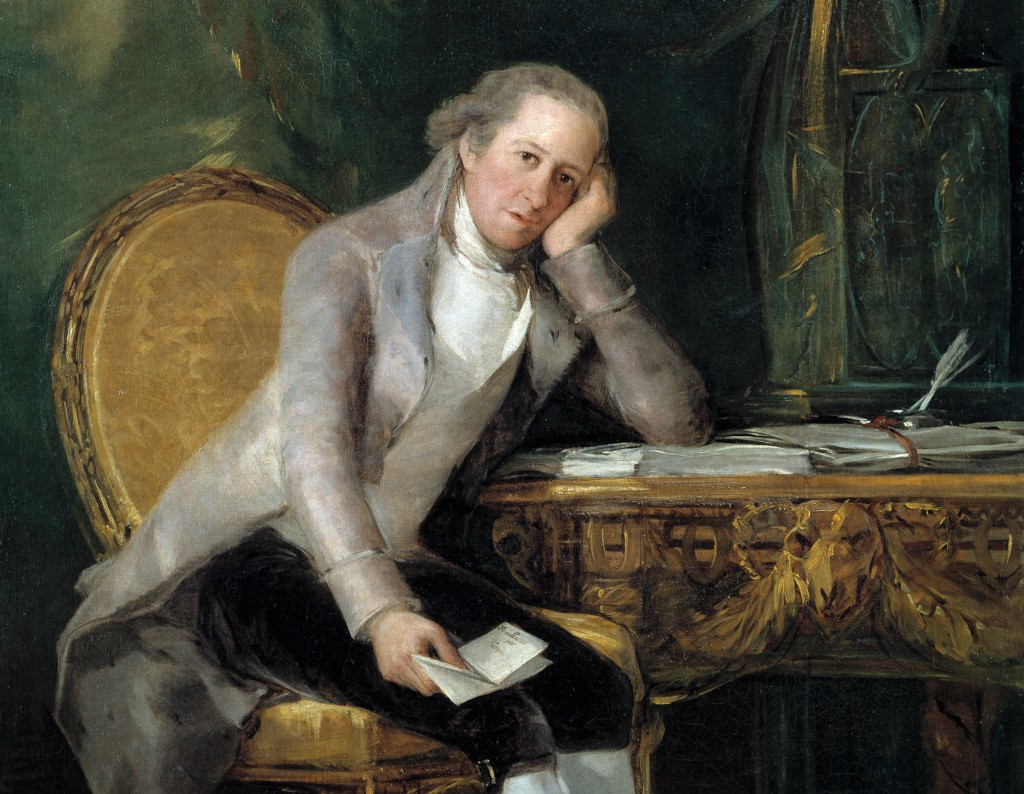Craft
What’s the Point of Writing If You’re Not Going to Succeed?
How to cope with having all the drudgery of writing without the reward

An earlier version of this essay was posted as a Rumpus Letter in the Mail.
Here’s the thing no one ever tells you about being a writer: Pretty much everything about it — the act of writing, the act of publishing, especially the act of promoting — is miserable. And it only gets worse as the years unfurl.
I’ve had a decent career. Four novels and a story collection. They haven’t made me much money (after taxes and commissions, maybe the cumulative equivalent of three cars?), but they’ve brought me some awards and gotten me a tenured teaching job with a good salary and benefits.
Yet the truth is, there’s little that is gratifying about this business. A few people — the golden, the anointed — seemingly have everything go their way. Big advances, rave reviews, major prizes, SRO crowds at readings, movie deals, the luxury of not needing a day job. For the rest of us, namely for so-called midlist authors like me, it’s a different reality.
A few writers — the golden, the anointed — seemingly have everything go their way. For the rest of us, namely for so-called midlist authors like me, it’s a different reality.
Writing is torture. Particularly while writing a novel, there is an inherent terror in the process, a fear that the whole enterprise will reveal itself to have a major, irreparable flaw and everything will fall apart (a lot of times, it does). They’re not much fun, those early drafts. This is nothing new. That’s not what I’m talking about.
No, I’m talking about something else. One of the most ridiculous things I’ve read recently was embedded in an appreciation of Denis Johnson, a writer whose work I loved. The article quoted someone who’d praised Johnson for his humility, for not indulging in the usual “ego humping” whenever an author publishes a new book — the readings and tour and interviews. This is about as laughable of a misconception of writers as you can get. “Ego humping”? That’s the last thing most writers are seeking or anticipating when they release a new book. Rather, what they’re really hoping to do is avoid abject humiliation.
Let’s face it, writers are, in general, a neurotic, insecure, self-flagellating lot — often shy and withdrawn and introverted by nature. For many, that’s what drew them to writing in the first place. That’s certainly true with me. So being pressured to perform and be charming and sell myself is absolutely terrifying. Over time, I’ve learned to be a good performer, but I am still filled with dread each time I have to do anything in public. It doesn’t matter that most of the time when I give a reading, there’s hardly anyone in the audience.
Almost as bad is having to promote myself on social media, which, regardless of how delicately and infrequently you post things, invariably annoys the hell out of everybody and makes everyone hate you.
Then there’s the agony of waiting for reviews, or receiving snarky or unfair or devastating reviews, or not being reviewed or interviewed at all and feeling truly irrelevant. All the while, you know there’s a clock ticking down on your career.
Is There Such a Thing as a Good Book Review?
Being a midlist writer is the most tenuous position in publishing. Believe it or not, it’s not the first book that’s the most difficult to publish. When you’re trying to sell your first book, you have no track record, no sales figures. It’s all promise and hope. Down the road, after three, four, five books, everyone can see — via your downward sales and media trajectories — how short you’ve fallen of your promise, and it becomes harder and harder to get a publisher interested in your next project.
So the question arises: Why do I keep doing this to myself if it’s so painful, if there are so few rewards for doing it? Why does any midlist writer continue in this business? What’s the point?
I don’t get many fan letters, but early in my career I received a couple that included what I thought was an odd petition: “Please keep writing.” As if there were the possibility that I wouldn’t. Now I think those fans were prescient. It would be very easy for me to quit writing at this point. It’s actually getting to be very tempting for me to quit. Those couple of fans notwithstanding, it wouldn’t matter to most people. I doubt anyone would even notice.
Why do I keep doing this to myself if it’s so painful, if there are so few rewards for doing it?
When I bleat into this kind of self-pitying state, though, I think about a writer who was probably the most miserable person I have ever met: Richard Yates. His work is familiar to quite a few readers now, thanks to a retrospective by Stewart O’Nan in The Boston Review in 1999, Blake Bailey’s biography, A Tragic Honesty, in 2003, and the film adaptation of Yates’s first novel, Revolutionary Road, in 2008, but at the time of his death in 1992, he was largely forgotten, and all his books quickly fell out of print.
Even within his lifetime, he was a writer’s writer, meaning he had a small following among literati but otherwise was almost completely unknown. I came across his work by pure chance in my early twenties. I was in Burbank, California, living in my parents’ condo, which was sitting empty at the time, working odd jobs, and waiting for grad school in Boston to begin. I spent a lot of weekends in a vast used bookstore in downtown Burbank, roaming the aisles and picking out battered paperbacks, almost at random, for fifty cents a pop. I happened to buy Yates’s first collection, Eleven Kinds of Loneliness (how could I resist that title?), got hooked, and read everything else I could find by him.
His bio note said Yates lived in Boston, and as I was about to leave for Massachusetts, I thought it’d be cool if someday I got the opportunity to meet him. My second night in Boston, I saw Yates sitting in a booth in a bar called Crossroads on Beacon Street. I recognized him from his author photo. It took me an hour to muster the courage to walk up to his booth. I said, “Mr. Yates, I just want to say that I’m a great admirer of your work.” He said, “Sit down. Have a drink.”
Thereafter, I ran into Yates fairly regularly at the bar over the next few years. (He lived above Crossroads, and ate lunch and dinner there every day.) We’d have a drink, talk a little. He asked to look at my work, and he read one or two of my short stories, and while he said some nice things, he also took them (and me) apart. He wasn’t really a mentor — I never really got to know him very well — yet he probably taught me more about being a writer than anyone else. Initially what he did was dispel any romantic notions I had about what constituted a writer’s life.
First of all, although he usually wore a gray suit and a tie to the bar, he was an awful sight. He was a drunk, a bad one. He’d sit at a booth, hunched and slumped, chain-smoking, getting ashes all over his suit and the table, and proceed to get thoroughly soused every night. He’d once had TB, and he had a terrible hack, coughing so wretchedly and for such a prolonged time that customers would ask the waitstaff if an ambulance should be called. Phlegm would fly. Snot would drip freely from his nose onto his beard.
He had no life. He had been married twice and had three daughters, but he rarely saw them. He was bipolar, and had breakdowns that required occasional hospitalization. I never visited his apartment, but I heard that it was bleak: two tables he used as desks, a typewriter, a radio tuned to classical music stations, and a television set on the floor that he never plugged in.
Yet, religiously, he sat down to write every day, despite being convinced that he was a failure, that he would be forgotten.
He had no life. Yet, religiously, he sat down to write every day, despite being convinced that he was a failure, that he would be forgotten.
One time, I saw him at Crossroads, jotting something down on a napkin. When I asked him what he was doing, he bashfully revealed that he was listing the titles of his books on the napkin. “Nine books,” he said. “Nine’s not bad, is it?”
He died in Tuscaloosa, Alabama, of all places. “Fucking Dixie,” he called it. He had gone there for a one-semester teaching gig at the university and, enfeebled by emphysema, had stayed on for the last couple of years of his life. After he died, some professors and grad students cleaned out his apartment. They knew he had been working on a final novel, and they searched for the manuscript. They looked everywhere, to no avail, their panic growing. Finally, someone found it in the freezer of Yates’s refrigerator. He had had a fear of fires. He’d once accidentally burned down an apartment. The freezer was a poor man’s fireproof safe.
I think of what Yates had faced — his alcoholism and ill health and loneliness, his psychotic breaks and tragic, myriad insecurities — and I marvel that, in spite of everything, he continued to write.
I think of what Richard Yates had faced , and I marvel that, in spite of everything, he continued to write.
Why did he keep doing it? It was torture for him, and he was so miserable. He had every reason to quit. He never made any real money off his writing. He was unappreciated by the press and ignored by the public. He wasn’t one of the golden ones, the anointed. He knew that nine books might not be enough for him to be remembered. He had been the ultimate midlist writer.
Nonetheless, he persevered. It was what he did. It was who he was. He kept writing, even when there were so few rewards to do so, even when the work was hard, and lonely, and unfulfilling. It was his life. It was his calling.
That’s what Richard Yates taught me most about being a writer. If you want to do this, you can’t expect accolades. You can’t expect riches or fame. You can’t expect anyone will ever care one iota about what you write. You can only try to find solace and satisfaction in the work itself, and carry on.
About the Author
Don Lee is the author of the novels Lonesome Lies Before Us, The Collective, Wrack and Ruin, and Country of Origin, and the story collection Yellow. He has received an American Book Award, the Asian/Pacific American Award for Literature, the Edgar Award for Best First Novel, and the Sue Kaufman Prize for First Fiction. He teaches in the MFA program in creative writing at Temple University.








